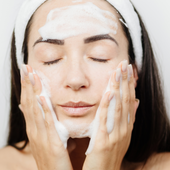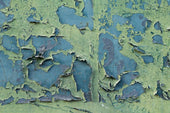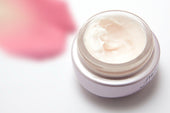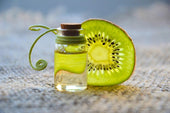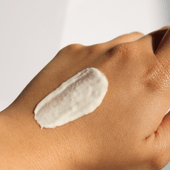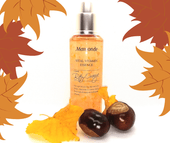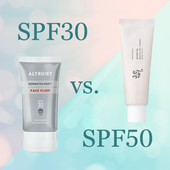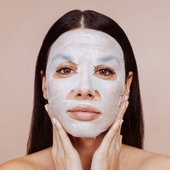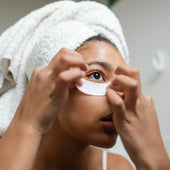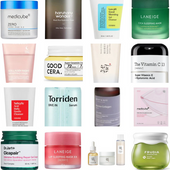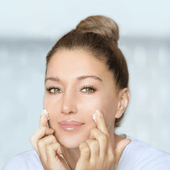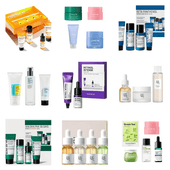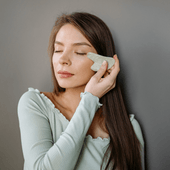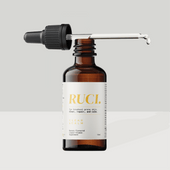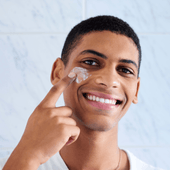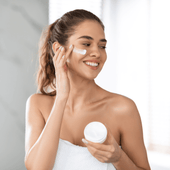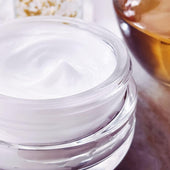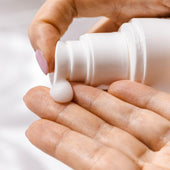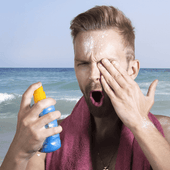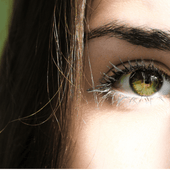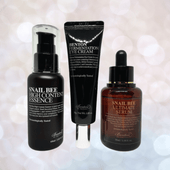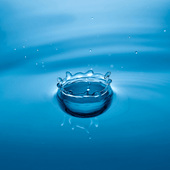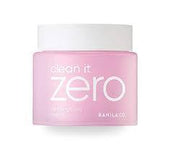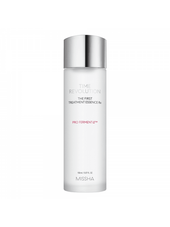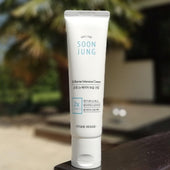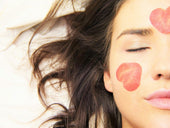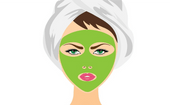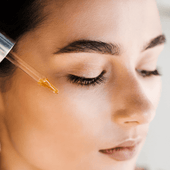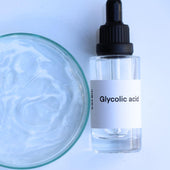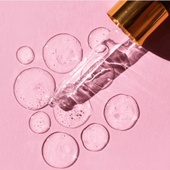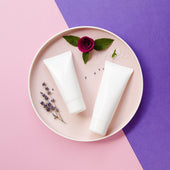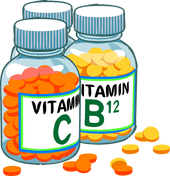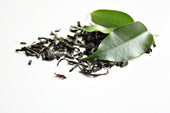Guide to Retinol Cream for Skincare
Share
In the fast-paced world of skincare, few ingredients have garnered as much attention and acclaim as retinol. Widely hailed for its transformative properties, retinol has become a staple in countless skincare routines, promising smoother, more youthful-looking skin. But what exactly is retinol, and why does it hold such promise? In this comprehensive guide, we'll look into the science behind retinol, its benefits, and address common concerns and questions surrounding its use. There’s a step-by-step guide on how to use it, and our recommendations for great products to get you started.
What is Retinol?
Retinol belongs to a class of compounds known as retinoids, which are derivatives of vitamin A. These compounds play a crucial role in various biological processes, including cell growth. Retinol is a milder form of retinoid that is converted into retinoic acid (the active form of vitamin A) once applied to the skin. This conversion process allows retinol to exert its effects on the skin, making it a potent tool in the fight against aging and various skin concerns.
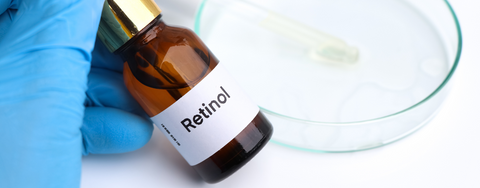
Benefits of Retinol
Anti-Aging: Retinol is perhaps best known for its anti-aging properties. By promoting cell turnover and collagen production, retinol helps to reduce the appearance of fine lines, wrinkles, and other signs of aging, resulting in smoother, firmer skin.
Acne Treatment: Retinol's ability to unclog pores and regulate oil production makes it an effective treatment for acne. It helps to prevent the formation of new breakouts while also fading post-inflammatory hyperpigmentation (PIH) left behind by previous blemishes.
Hyperpigmentation: Retinol can also help to even out skin tone and fade dark spots and hyperpigmentation caused by sun damage, acne, or aging, revealing a more radiant complexion.
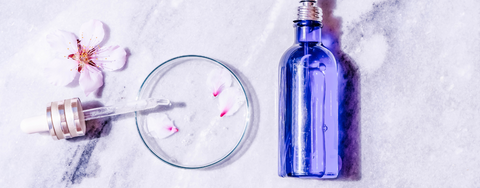
Does it work?
Numerous studies have demonstrated the efficacy of retinol in improving the appearance of aging skin, acne, and hyperpigmentation. Consistent use over time yields visible results, although individual responses may vary.
Are there side effects?
While retinol is generally well-tolerated, it can cause temporary side effects such as dryness, redness, and peeling, especially during the initial stages of use or when using higher concentrations. These side effects can often be mitigated by starting with a lower concentration of retinol and gradually increasing frequency as tolerated. Peeling will subside as your skin gets used to the application of retinol.
What about sun sensitivity?
Retinol can increase the skin's sensitivity to the sun, making it crucial to use sunscreen daily and limit sun exposure while using retinol-containing products. Start by only using retinol in your evening routine to minimise the risk of a bad reaction when exposed to the sun.
The sun can also reduce the effectiveness of the retinol, so protecting your skin from the sun is essential.
Is it compatible with other products?
Retinol can be safely incorporated into most skincare routines, but it's essential to avoid combining it with certain ingredients like benzoyl peroxide, as this can cause irritation. Benzoyl peroxide is often found in skincare products specifically aimed at tackling acne, check the ingredients list to be sure.
You should also avoid using it alongside skincare products containing high concentrations of vitamin C, and any AHA or BHA acids as this can lead to irritation. One way to manage this would be to use these products in the morning and retinol in the evening.
Consult with a dermatologist or skincare professional if you are unsure about product compatibility.
How often should you apply it?
Beginners should start by using retinol a few times a week and gradually increase frequency as their skin adjusts. Those with sensitive skin may need to use retinol less frequently or opt for a lower concentration. Always listen to your skin and stop using it if your skin becomes irritated.
How long does it take to see results?
Visible results from retinol typically take several weeks to months to manifest, so patience is key. Consistent use is essential for optimal results.
Can you use Retinol during pregnancy and while breastfeeding?
Pregnant or breastfeeding individuals are generally advised to avoid retinol due to potential risks to the baby. The NHS in the UK advises that you avoid using retinol due to risks of it affecting the baby’s development. For more information check out Vogue’s ‘Definitive Guide to What Skincare Products to Avoid While Pregnant.
For those unable to tolerate retinol or seeking alternatives, ingredients like bakuchiol, a plant-derived retinol alternative, may offer similar benefits with less risk of irritation.
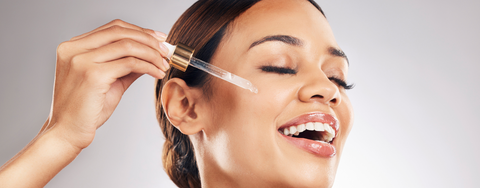
How to Use Retinol In Your Routine
Incorporating retinol into your skincare routine requires careful consideration and attention to detail to maximize its benefits while minimising potential side effects. Here's a step-by-step guide on how to use retinol correctly:
- Start Slowly: If you're new to retinol, begin by using it only a few times a week to allow your skin to acclimate. Starting with a lower concentration of retinol is also advisable for beginners.
- Cleanse Your Skin: Start your skincare routine by cleansing your face thoroughly to remove dirt, oil, and makeup. This prepares your skin to better absorb the retinol.
- Apply Retinol: After cleansing and drying your face, apply a pea-sized amount of retinol to your skin. Gently massage it into your face, avoiding the eye area, as retinol can be too harsh for the delicate skin around the eyes. Start by only using retinol in your evening routine to reduce the risk of sun sensitivity.
- Wait Before Layering: Allow the retinol to fully absorb into your skin before applying any other products. This usually takes about 20-30 minutes.
- Moisturise: After the retinol has absorbed, apply a moisturiser to hydrate and nourish your skin. Look for a gentle, moisturiser that won't block or clog pores or exacerbate any irritation caused by the retinol.
- Use Sunscreen: Since retinol can increase your skin's sensitivity to the sun, it's crucial to apply sunscreen every morning, even on cloudy days. Choose a broad-spectrum sunscreen with SPF 30 or higher and reapply it throughout the day as needed. If you experience irritation due to the sun, consider only using retinol in your evening routine, reduce the frequency or use and lower the concentration. Browse our range of high-protection sunscreens here.
- Avoid Harsh Products: While using retinol, avoid using harsh exfoliants, abrasive scrubs, or other potentially irritating skincare products. These can exacerbate dryness and irritation caused by retinol.
- Be Patient: Results from retinol typically take time to manifest, so be patient and consistent with your routine. It may take several weeks to months before you notice significant improvements in your skin's texture, tone, and overall appearance.
- Adjust as Needed: If you experience excessive dryness, redness, or irritation while using retinol, scale back the frequency of use or switch to a lower concentration. You can also buffer the retinol by applying it over a moisturiser to minimise irritation.
- Consult a Dermatologist: If you're unsure about how to incorporate retinol into your skincare routine or if you experience persistent irritation, it's always best to consult a dermatologist for personalized advice and guidance.
By following these steps and incorporating retinol into your skincare routine gradually and responsibly, you can enjoy the benefits this potent ingredient has to offer while minimising any potential side effects.
Remember to start slowly, listen to your skin, and be consistent in your skincare routine for the best results.
Refresh Recommends:
Best for Beginners: COSRX The Retinol 0.1 Cream 20ml - Formulated with a mild 0.1% retinol concentration, this cream is a great way to start your retinol journey.
Best for Balance: Elizavecca Milky Piggy EGF Elastic Retinol Cream 100ml - The active retinol is balanced with swiftlet nest extract to help maintain the oil-moisture balance of the skin. This is a great way to continue applying retinol once your skin is used to it.
Best for Eyes: Some By Mi Retinol Intense Advanced Triple Action Eye Cream 30ml - Specially formulated for skin around the eyes, this rich cream contains a high concentration of retinol for great results.
Say Hello to Incredible Skin
Here at Refresh Skincare we stock a wide range of top-quality, effective Korean skincare. We are based in the UK and offer free UK tracked delivery in 2 to 3 days for all orders over £30. If you change your mind you can return your order within 30 days for a full refund. You can save 10% on your first order when you sign up for our email newsletter.
Further Information
- ‘9 Essential Things to Know Before Using Retinol and Retinoids’ - an excellent guide from Vogue.
- ‘What is Retinol? A Beginner’s Guide to the Hero Ingredient’ - Marie Claire go in-depth to the science and uses of retinol.
- ‘Skincare Demystified: What is retinol and why should you add it to your skincare routine?’ - Cosmopolitan’s easy-to-access guide covering what retinol does, who should use it and the best products to get you started.
Please Note: The information in this article is provided for information only and should not be seen as a substitute for professional advice. Everyone’s skin is different, so please consult a dermatologist for advice on individual skincare issues.
About the Author

Priscilla
Skincare fanatic and co-founder of Refresh Skincare. Follow the author on social media:


